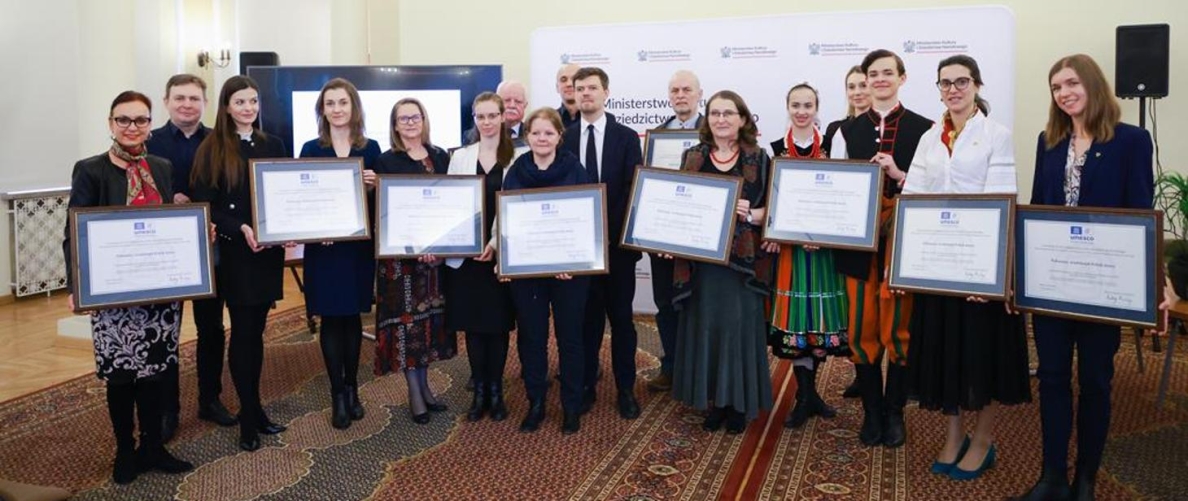
Today, representatives of institutions and organizations involved in preparing the application to include our dance on the Representative List of the Intangible Cultural Heritage of Humanity received the UNESCO certificate. The polonaise - a traditional Polish dance - was honored in December 2023 during the 18th session of the Intergovernmental Committee for the Safeguarding of the Intangible Heritage in Kasane, Botswana. This is the sixth Polish tradition on the UNESCO heritage list.
The ceremony, which took place at the headquarters of the Ministry of Culture and National Heritage, was attended by representatives of the Polish Section of CIOFF – the International Council of Folkloristic Associations, the Folk Art Festival, the Cracovia Danza Court Ballet, the National Institute of Music and Dance, the National Heritage Institute, the Municipal Cultural Center in Józefów, Krakow City Hall, the University of Warsaw Dance Theater "Warszawianka" and the Song and Dance Ensemble of the Warsaw University of Technology.
The tradition of polonaise
The tradition of dancing the polonaise dates back to the 16th century under the name chodone, and under the name polonaise from the 18th century. This dance is one of five traditional Polish dances and has a symbolic dimension. It is considered an open and egalitarian dance. Its accompanying values, such as equality and cooperation, constitute its unifying character.
Nowadays, the custom of dancing the polonaise is inextricably linked with important events in life. In almost every Polish high school, it is a tradition that this dance officially opens the prom. The polonaise is also a common element of weddings and local celebrations. Due to its popularity, it is also danced spontaneously during the celebration of national holidays. It is a living tradition widely practiced throughout Poland, both in small towns and large urban centers.
The polonaise is the sixth Polish tradition inscribed on the UNESCO list. In previous years, the following was recognized: Krakow nativity scene (2018), beekeeping culture (2020), falconry (2021), the tradition of flower carpets for Corpus Christi processions (2021) and rafting (2022).
From: Ministry of Culture and National Heritage

